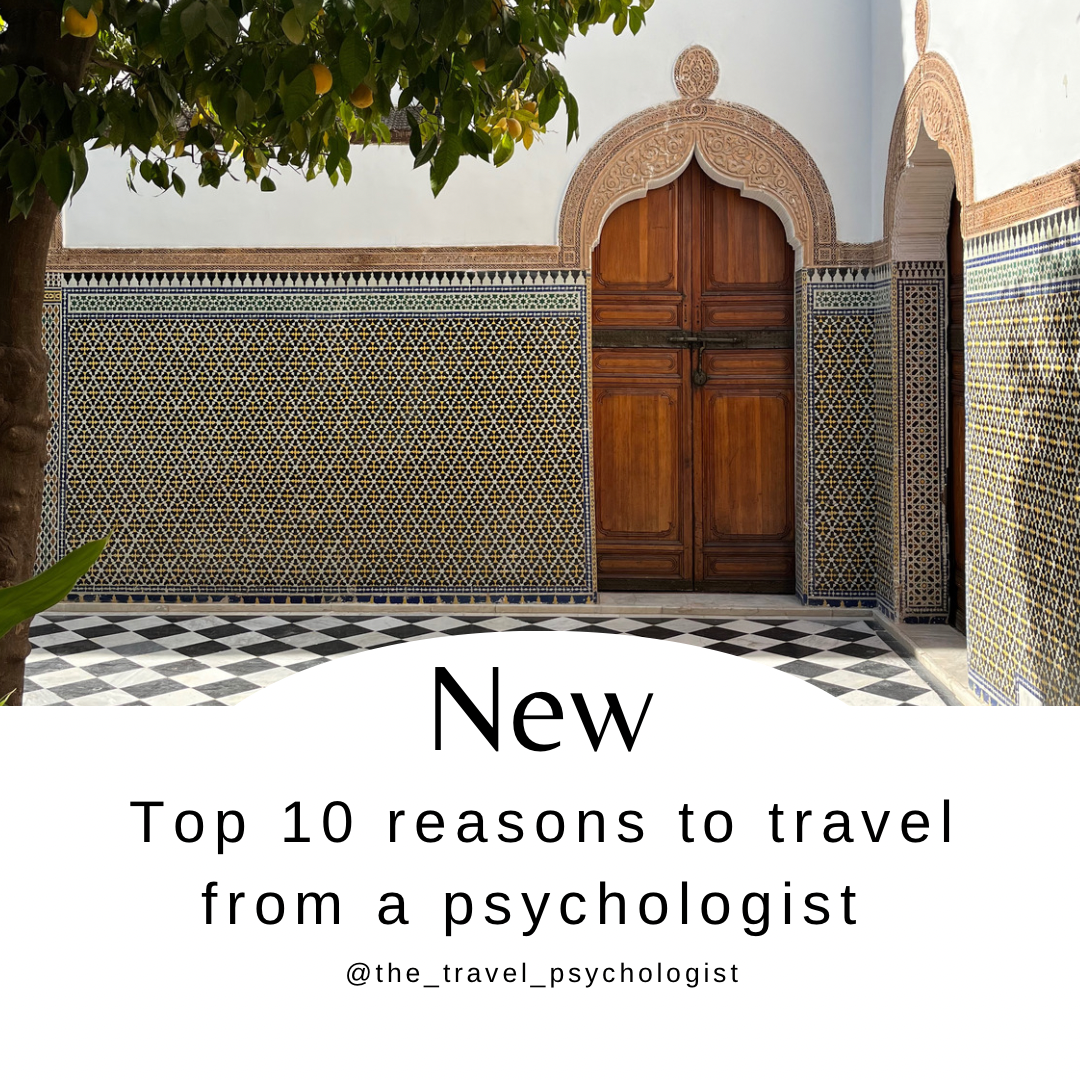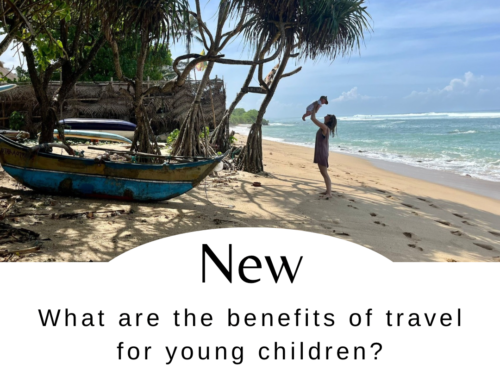Dr Charlotte Russell, Clinical Psychologist & Founder
Here at The Travel Psychologist blog we write a lot about the psychological benefits of travel. Yes travel can be expensive and it can be stressful at times, but it can be amazing for our well-being, personal growth and to recharge our curiosity.
Most of us who love travel don’t ever need a reason to book a trip, but just in case you do, here are my top 10 reasons to travel.
-
To fuel our sense of adventure
Travel allows us to seek new and different experiences, to get away from our day-to-day routine and to challenge ourselves. This sense of adventure can be a fantastic way to energise us and to build our confidence. Dr Nicola summed this up nicely in her article Adventure tourism: how to have an adventure that’s right for you
-
To enhance our creativity
Travel can be a great way to enhance our creativity in a number of ways. These include allowing us to appreciate different perspectives and providing inspiration for our creativity. I wrote more about this in my article How can travel help with our creativity and well-being? Flexing our creativity muscles can be great for our well-being and for our ability to be flexible and to problem solve. This is one way travel can help us to be better at life!
-
To provide experiences we can learn and grow from
One of the most important reasons to travel is that by experiencing multiple cultures we learn about different perspectives and ways of seeing the world. By challenging ourselves we also learn about ourselves and the things that we find difficult, and where our strengths are. All of this learning can be hugely beneficial for our personal growth and can help us to navigate challenges long after we return from our trips.
-
To increase our psychological flexibility
As well as opportunities to experience different cultures, travelling involves putting ourselves in situations where we have to be flexible and adapt. This might involve understanding the local customs, changing how we communicate, or eating at a different time of day to follow what the locals do. When we build our ability to adapt we become more psychologically flexible and it is this helps us to deal with any change or challenge, even when we return home.
-
To fuel our curiosity
I often talk about how curiosity can be a psychological superstar. In our day to day lives we can become very specialist in our jobs and have routines that over time can sometimes become rigid, monotonous and stagnant. As an antidote to this, it is important for our well-being to have regular ways of ‘shaking things up’ and fuelling our curiosity. Travel is really a great way to do this; seeing different sights, experiencing different cultures, finding out information you never knew, and trying new activities are all great examples.
-
To challenge ourselves and to create meaning
Challenging ourselves can be an important way to grow, even if these experiences do not always feel good in the moment. Dr Nicola previously wrote about the concept of psychological richness and how pursing new, interesting and challenging experiences can enhance this. The message here is that it is important to push ourselves out of our comfort zone. Travel provides us with lots of opportunities to do this.
-
To help us build a sense of calm within
In my clinical work as a psychologist, I often observe how clients can use their travel experiences as a way to create a sense of calm within. I wrote more about this in Beaches, benches and nature: travel and our sense of calm This tells us that our travel experiences can stay with us and help us to cultivate a sense of calm long after we return home.
-
As a tool to keep our brains active and healthy
We all know the importance of staying active, both for our physical and mental health. Staying active on our travels can be an important way to do this whether it is a beach yoga class, swim in the ocean or a hike across a beautiful mountain range. In this article, Consultant Neuropsychologist Dr Julia Cook wrote about how travel experiences can help to keep our brains active as we age
-
To help build relationships
Romantic relationships are not always easy and travel can provide positive experiences and time to reconnect with one another. Time together, joy, new experiences, laughter and the opportunity to be carefree are all available when we travel. These experiences are important to strengthen our relationships to enable us to get through the stresses and strains that life will inevitably throw at us. Getting the most of our trips and minimising any tensions is important, so if reconnecting is your aim read my article travelling together as a couple: advice from a psychologist
-
To help us gain distance from life’s challenges
When we are faced with life’s challenges and feeling stressed and overwhelmed it can be beneficial to take some time away. Of course, this doesn’t mean the problem will change when we return home, but having some space and time away can help us to restore and reflect. Sometimes we will feel differently when we return home and sometimes we will feel clearer about what actions we may need to take. I wrote more about this in Travel and our appetite for life
What about the disadvantages of of travel?
Whilst travelling has many benefits, it can challenge us at times. To help you to manage these difficulties here we have put together a range of guides to help you to manage the challenges of travelling. These range from trying to decide what your budget is, to manage times of stress and anxiety.
Our most popular guides are:
How much should I spend on my holiday? A psychological guide
How can I make the most of a disappointing trip?
Travelling with mental health difficulties
Not enjoying travel: Coping with depression while travelling
How to deal with travel anxiety: fear of something bad happening
We hope you find these guides helpful to allow you to make the most of your trip.





